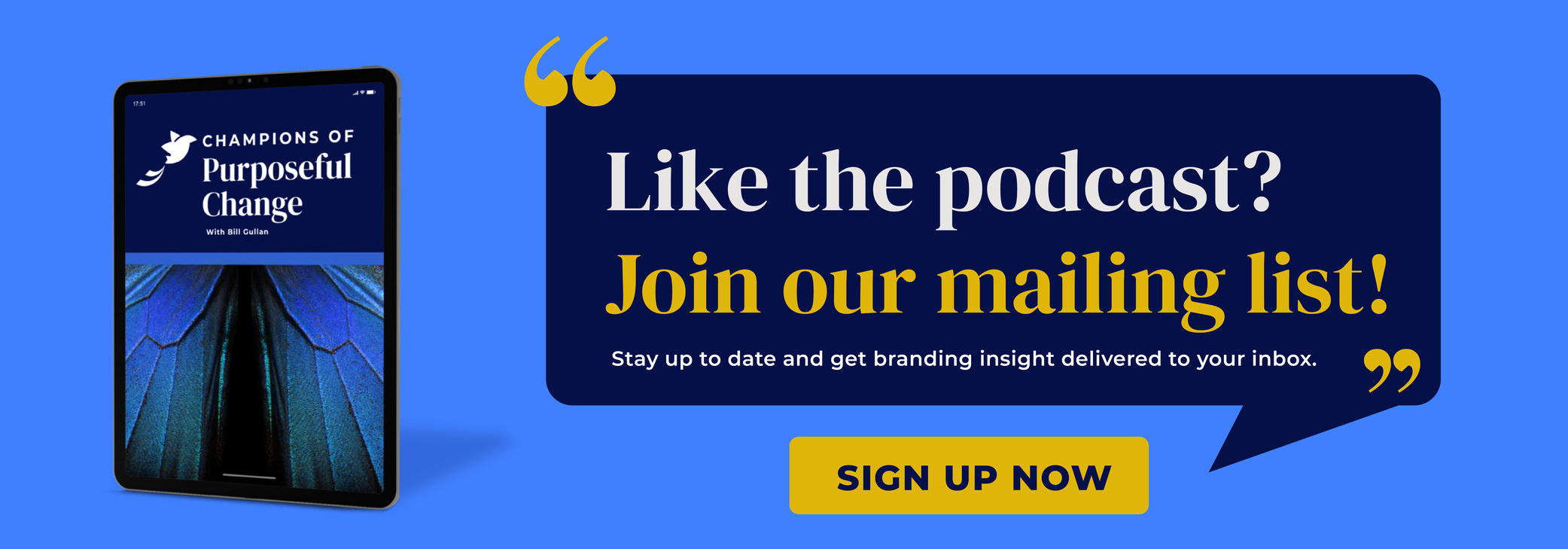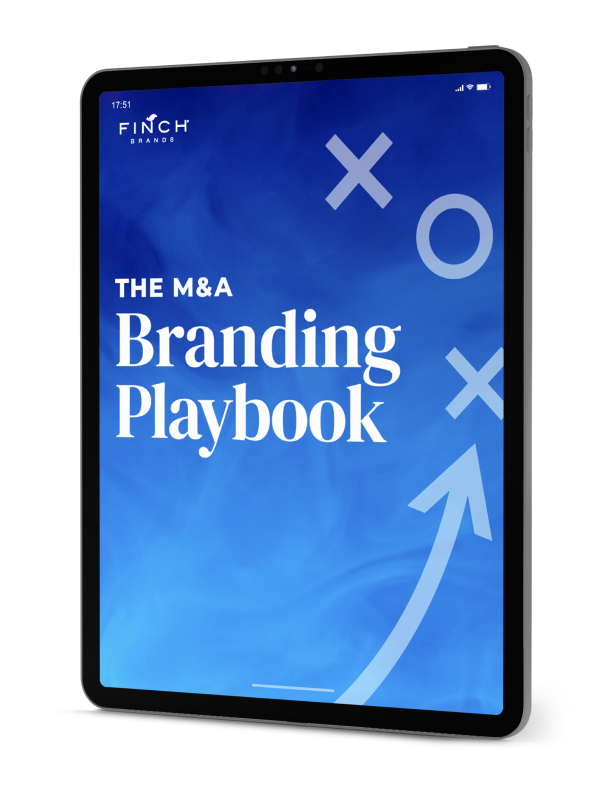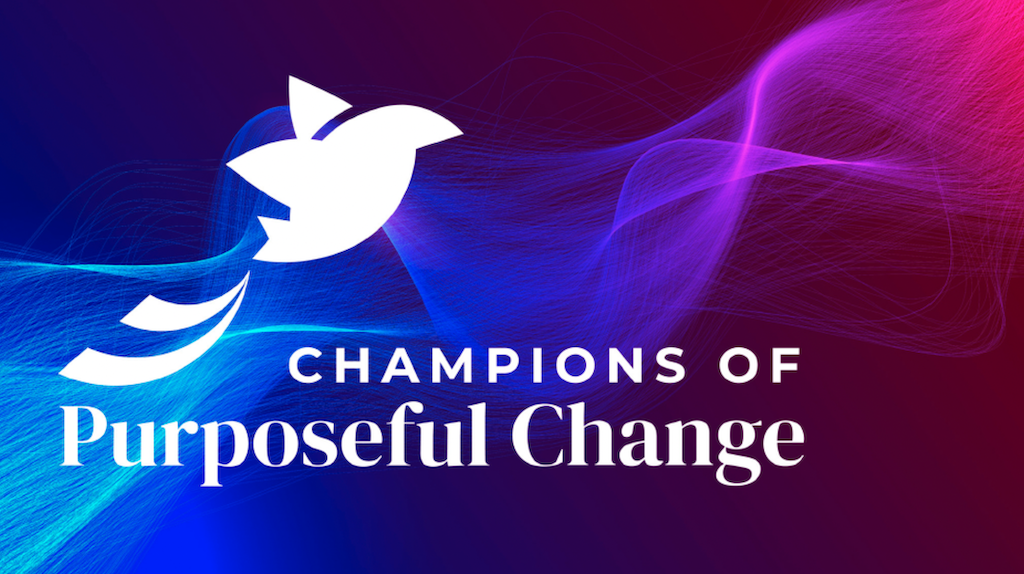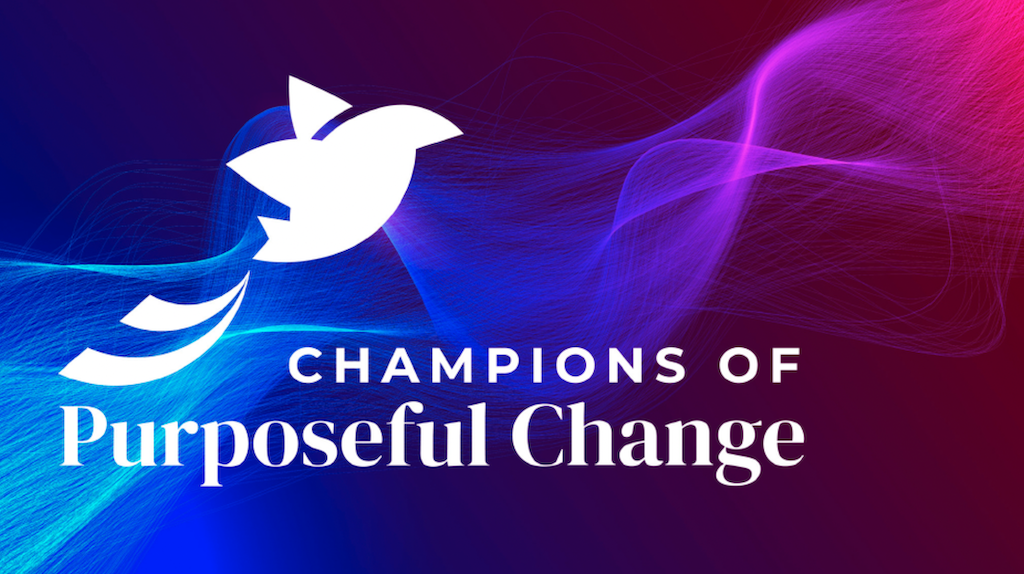Getting Kleer Direction – Dave Monahan, CEO of Kleer

Countless industries are ripe for disruption, and the dental market is no different. Dave Monahan and his team knew there was something to be done but needed clarity to build a successful model. Through a rigorous process of market research and beta testing, they’ve built a brand and platform at Kleer that cuts out the middle man and connects dentists directly with consumers to make dental care accessible and easy for all. If you enjoy our podcast, please subscribe and leave us a rating!
Podcast: Download Subscribe: iTunes | RSS
Transcription:
Dave Monahan: And I didn’t know that market, it was a bit a whim to say, “There’s something here, but I’m not quite sure what it is, let’s go dig.”
Bill Gullan: Greetings one and all, this is Real-World Branding, I’m Bill Gullan, president of Finch Brands, a premier boutique branding agency. Big treat today, despite my obvious nasal condition here, and my apologies to our listeners, I seem to have a little bug every time we do this, but that will not diminish the enthusiasm for our guest, Dave Monahan, who’s the CEO of Kleer, which is K-L-E-E-R, and as he’ll tell you a disruptive force, soon to be and already beginning to be a disruptive force in the dental insurance market, and the dental market in general. Connecting dentists who want to think a little bit differently about services and how they’re bundled and delivered, and consumers who are in need or have a desire for a greater level of care, and consistency of care.
So, Dave’s backstory is fascinating in terms of starting on the engineering side of the world with a passion for software and technology, and as his responsibility grew, as he enhanced his education, moving into more general management roles, including a really strong tenure at Microsoft, among other places, and then now moving more into the early state realm with the last business he was part of, which was in the fitness channel, and now with Kleer.
Kleer itself has had an interesting development story, and he’ll take you through all that. Enjoy Dave Monahan.
We’re here in the Wayne PA offices of Kleer, which is K-L-E-E-R, with Dave Monahan, who’s the CEO, thank you for having us.
Dave: Oh, thanks for having me on it.
Bill: And such an interesting business story, not only your journey, but what you’re doing here at Kleer, and we’re going to try to touch on all of that.
To start, could you take us through some of the steps in just your own career journey that has led up to this point?
Dave: Sure, yeah, I’ll try to make it brief so I don’t bore you, but so when I came out of … I actually went to Penn State University.
Bill: Heard of it, they have a football team, I think, right?
Dave: They do, and they’re back.
Bill: Yep.
Dave: I was just up there this weekend actually.
Bill: Nice.
Dave: But so graduated in engineering, actually went to work for Northrop Grumman in advanced avionics and electronics and surveillance systems. And just a little claim to fame, we were working on the first surveillance systems for drones back in the early 90s.
Bill: Take credit for that, you invented the drone, nice.
Dave: Exactly.
Bill: Nice work, wow.
Dave: It was incredible. but back then you weren’t even allowed to talk about it. But anyway, so a lot of advanced avionics things. But at the same time, and I’m not sure if it still happens, but they paid full ride for MBA once you’re working, so I got my MBA at night from Loyola, and spent about five or six years at North Grumman then moved on and started working for a company called SkyTel, which their claim to fame was two-way paging back in the mid 90s.
Bill: I think I had one.
Dave: It was amazing, actually I was running their US marketing team. But what was amazing, when I look back on it, it was actually messaging and it was texting, but we didn’t realize it. We didn’t realize what we had, I don’t think. But they ended up consolidating, moving their offices down to Mississippi, I had no interest in going to Mississippi.
I moved into and worked for a small, private company called Phillips, who has done a number of things, but one of them was around nutrition. They were doing supplements, they were also doing some newsletters around nutrition and really, I got my … I learned a lot about finance and business analysis, and basically worked with their CFO to better understand their business and make some decisions from a business perspective and a strategic perspective, and got a really good grounding on the financial side when I was there.
So, if you think about it, first engineering, second job was marketing, third job was finances.
Bill: MBA in between, yeah, yeah.
Dave: Trying to round myself out.
Bill: General management direction. Yeah, sure.
Dave: Exactly. And I randomly … Microsoft came in and was interviewing … I was actually living down in DC at the time. And was interviewing so I said, “What the heck, I’ll go talk to them.”
Talked to them, next thing I know I’m out in Redmond doing some more in-depth interviews and land at Microsoft. And at Microsoft I actually started in the Toronto office, and I was lucky enough to be basically reporting to the VP who ran all of Canada, and the central part of the US.
So this is the Wild West of Microsoft, but that territory, you can’t get much bigger. But, very large business. Billions of dollars. And my job was to help that vice president better understand his business, and make strategic decisions about what they’re going to focus on, how they’re going to market, what’s the customer base, how do we partner, all that good stuff. So, I got exposed to pretty much everything in a company. My first week, actually, at Microsoft, I was in front of Steve Ballmer.
Bill: Nice.
Dave: Presenting to him.
Bill: What was that like? He’s a pretty high intensity guy, right?
Dave: Really intense. So I’ll give you … let me paint the scenario. I’m a week in. I know nothing alright, about Microsoft. And my VP, his philosophy is throw people into the fire.
Bill: Yeah, that’s the way to do it.
Dave: So he put me in, we had a business review. Every year, every business needs to come into Redmond, present how they did the prior year, and then present what they’re going to do for the following year. So my job was to do the first 10 minutes of that all day presentation. Where I sum up everything that’s happened and where we’re going.
So, come back to Ballmer for a second, so I’m five feet … we’re across the table from each other and I’m presenting. It’s about 8:00 in the morning. And he already has pulled off his tie, he’s unbuttoned his shirt, and he’s thrown his shoes off. By the time I’m done with my presentation…
Bill: He’s pacing around the room, nice.
Dave: And basically, he tells me at the end he hated my presentation.
Bill: Excellent. Nice job on the first week, really outstanding.
Dave: So I figure I’m done. Right, that’s it.
Bill: Got to go up from there, right?
Dave: Yeah. But he gave me an amazing piece of advice, he basically said, “Never present any problem without a solution.” And I presented a number of problems without solutions. So, I will never do that again. But anyway, I spent about eight years at Microsoft, and I went from that business manager job, to running multiple businesses for Microsoft.
I ran their Washington DC office, we moved down to DC. I basically ran their … it was Virginia DC, Maryland and Delaware territory. And then moved up to Philadelphia. I actually grew up here, but left for a while, came back, and ran their Philadelphia office. So, when I was there, learned a ton, it’s by far the most influential company, for me from a career perspective.
Learned how to run a business, and a number of things. But from there, my real interest was health and tech. That’s really what I cared about most. A friend mine who was working at Microsoft, he left, joined a VC up in Boston. They were looking for a CEO of a health tech company. It was more fitness tech at that time. Called FitLinxx, and they came and asked if I’d like to do it. I accepted, and went up and started running a company called FitLinxx.
The net was, when I got there, they were basically putting electronic devices on fitness equipment. So, for gyms, they would go and wire up the whole facility. You could get data off the equipment when you came in, you’d get a report online, all that good stuff. You could track your exercise, but it was only for the gym. In about six months, I decided to change the strategy of the company, and focus on wearable devices.
This was back when nobody knew what wearables were. So, we ended up acquiring a company, it was actually a set of 10 engineers in a barn outside of Boston. I ran into the CEO of that company at a conference, we thought there was a good fit. We acquired them, brought them in, and then we started focusing on wearable devices.
One of our claims to fame was we built the Nike Plus products for Nike.
Bill: Very cool.
Dave: Yeah, and then we built a device, it was basically a device you could put on your chest that monitored your cardiovascular system. We ended up selling the company to a medical diagnostic company in April … or March of 2016.
Bill: Nice.
Dave: And then we were looking for something to do.
Bill: Moved down here, yeah. Nice. And we’ll get to what that something is. Real quick question about Microsoft though, you were there, at least according to LinkedIn, from about ’99 to ’06 which seems like it would’ve coincided with the shift from PC to mobile, at least on the tail end of that. What was that like? And I know you needed a problem and a solution, but that was a big sea change, wasn’t it?
Dave: It was huge. It was absolutely a monstrous sea change. There was two sea changes that happened at Microsoft when I was there. One was that, and the other was the whole antitrust, DOJ thing, which was a major influence on what the company did. But, yeah, back in … it was probably 2002, or 2003, Microsoft actually came out with a handheld device that, if you remember, the little stylus.
Bill: Yeah, sure, sure.
Dave: They were well ahead of the curve of that market. But they didn’t go after it, and as everybody knows, they the lost the mobile war in the beginning. And it was a classic, I think, case of there was so much money to be made elsewhere that it was an incubator, it didn’t make a lot of money, it was a nice business, but it wasn’t something they focused on. There was just way too much money to be made in Windows and Office and all of the productivity suites, and-
Bill: And channel competition with hardware partners I would imagine.
Dave: It was very complicated. And also, the company at that point was not a hardware company. We were a software company. They were fooling around with some hardware, but the net was they weren’t really a hardware company. So, it was a nice little tangential business, it was a nice product, but just never focused on it, until they realized it was a big market. And then they reacted to all of that.
Bill: Sure. And then … yeah. Totally, and now they’ve resurged, at least in some ways. Interesting, what a story. I mean, the whole peaks and valleys in that company and it’s history.
So here we are. You’re somebody who has an engineering and technology mind and background, the general management disposition and skillset. And here we are in the offices of this business, Kleer. Tell us a little bit about what you all are up to, and not to give away the story, but what is it about the dental marketplace that is so ripe for disruptive thought, and new ideas?
Dave: So let me say from the beginning, if you asked me would I be in the dental market two years ago, I would’ve said no. I-
Bill: I mean, I brush, but-
Dave: Yeah, exactly. But so when after I sold the company FitLinxx, I was looking for what I wanted to do next, so I’d been networking a little bit, and I ran into somebody who owned six dental practices, and just started talking about the market. And what really struck me was about 50% of people in the US do not go to the dentist. Even though they know that it’s very important and it’s important for their health.
The other part that really surprised me was that dentists were struggling to make profit, and also increase revenue, given the control insurers had on the marketplace. And the insurers basically dictate what the dentists get paid.
So, we spent about six, seven months researching it and as you know, we used Finch Brands to do the market research.
Bill: It was a very interesting process.
Dave: And what came out of that, was for us, a major revelation. There was on one side, if you talked to the consumers, and you remember some of these discussions and interviews, yeah, which Bill was leading, the consumers wanted more dental care. They were avoiding it for really one reason, which was cost. But when we dug into it further, it wasn’t just cost, it was fear of cost.
What we realized in the research was that consumers had no idea how much dental services cost. So, there was a large group of consumers who wanted care but didn’t think they could afford it. You had dentists who most of their patients were coming through insurance, but they had trouble making money off the insurer programs. And what they were looking for … and by the way, it’s not just that the fees are low, that insurers force on the dentist, it’s also there’s a lot of hassle associated with insurers.
Bill: I can imagine.
Dave: Yeah, and paperwork, and denial of claims, and you got to pre-approvals, and you have caps and it’s insane, if you’ve ever looked at a dental insurance contract-
Bill: Well for a consumer, it works differently than we’re used to in terms of insurance. Dental insurance seems like it isn’t even really insurance at all, at least in the way we mean it health wise, yeah.
Dave: Absolutely, so dental insurance is not insurance. It isn’t. It’s basically prepaid cleanings and exams, with discounts on anything else.
So that was also an insight from that research was this really is a simply program, at the end of the day. It’s not complicated insurance. So from that research, what we saw, was the need to directly connect patients with dentists and get rid of the middle man. So think about all the industries where that’s occurred, right?
Bill: Right, sure.
Dave: Uber, whatever, you can pick 100 of them now. But what we decided to do was create a company called Kleer. K-L-E-E-R. And it’s a platform where dentists can come in and set up a dental care plan that they offer directly to their patients. So it looks very much like insurance. It’s not insurance, quote, unquote, but it’s basically they can put your two cleanings, your exams, your x-rays, package that up, plus discounts off all other treatment, like fillings and crowns, and so on and just charge a subscription for those services.
So typically, we see $25 to $30 a month is the subscription that they charge. You basically have a full dental care plan and then on the consumer side, so the platform enables to dentist to very easily set that up, and create that program they want to offer, with lots of different things they can customize and decide for their practice what makes sense.
On the other side, on the consumer side, we have a whole consumer facing side, with website, mobile app. Very easy to purchase the plan from your dentist and then you get the full range of … you get a membership card, you get plan documents, you have a website and a mobile app you can log on to see your benefits and manage payment, all that good stuff, just like any other consumer app.
Bill: Right.
Dave: So very simple.
Bill: Supply and demand side, I know that we were talking a little bit before we started about obviously efforts to equip the dentists who are in the program with all of the information the consumers would want when they walk up to the front, or whatever. But for consumers, and we know that there’s a high percentage who don’t have a dentist of record, I know that company’s endeavoring to find ways to reach them with a lower acquisition cost. Any thought on … but as we talk about long term, thoughts about the consumer channel versus the professional channel, and how you all are thinking about setting these up and making sure this can scale?
Dave: Yeah, so we went through a few iterations as we were building and learning. So initially, we were thinking a lot of our effort would be towards the consumer and marketing to the consumer, and bringing in new patients for the dentists. What we learned, pretty quickly, is about 30% of a patient base within a typical dentist office does not have insurance and they want something.
They want coverage. And by the way, the market research highlighted that. We just didn’t know how the dental practices would respond to that opportunity. So, within probably two months, a month, two months of launching the platform, the feedback from dentists was, “This is a great solution for my uninsured.”
And they had a number of groups of uninsured. So uninsured patients who came in all the time. Once or twice a year. They had what they call dormant patients, who don’t have insurance and stay away, and typically only come when they have a major issue. So that group is about 10% of their base.
And then another group was just retirees. So not a lot of people realize this, but as you retire, your dental benefits go away. Because there’s nothing under Medicare to cover dental. So you have to go out into the market and buy whatever’s out there.
Bill: And you would think that that coincides with the greatest need for care, as you get older and your teeth are-
Dave: Absolutely. Yeah. So, and I’ll get back to the question in a second, but so, and then actually one other group was just small employers. About 50% of small employers don’t offer dental benefits, and it’s the number three benefit that employees want. So it’s healthcare, 401k, and then dental and 50% of small businesses don’t offer it. And the reason they don’t offer it is because insurance is too expensive, it’s too complicated, and all that stuff.
So, what we realized was we did not have the emphasize the consumer market. We actually needed to emphasize marketing to the dental practices. Bringing them into the platform, teaching them how to sell and market to their patients, and giving them the tools to do that. So, we actually have a suite of tools they can use, all the way from sheets in the office that the patient can take, up to sophisticated digital marketing tools that they can customize on our platform and offer through Facebook, or Google ads or whatever.
Bill: All the ways they communicate.
Dave: Yeah, so what we’re focused on now is enabling the dental practices to market to their patients.
Bill: Yeah, and the value proposition to them seems rather clear, forgive the pun, as an acquisition tool, as a frequency tool, as a loyalty and lifetime value, and it makes a lot of sense.
Dave: So we’ve … I haven’t mentioned, but I’m a bit of a data nerd, we actually pooled data from the dental practices on our platform, and we analyzed patients who have insurance, patients who don’t have insurance, or a membership plan and then patients who have a membership plan. And we said, okay, what’s our pattern, right, of utilizing dental services and how much they typically purchase all that good stuff.
What is really interesting is, insurance plan patients and membership plan patients act exactly the same. They come in for their cleanings, they come in and when they’re in, they’re in the chair, if the dentist suggests treatment, they accept it, for the most part because they have a dental plan.
Bill: And they’re lying there with their open in a chair, right.
Dave: Exactly, everybody’s been through that experience and they accept treatment anywhere between two and three times at a higher rate than people who don’t have insurance and don’t have a membership plan. So you get about twice as much treatment acceptance from patients on a membership plan than people not on a membership plan, or not insured.
Bill: Makes sense.
Dave: But, the huge benefit of being on the membership plan for the dentist is there’s no middle man. You get paid directly. So, if you take a step back, the benefits to the dentist are multiple. One is they lock in a subscription. A profitable subscription that’s guaranteed on an annual basis, and they can count on that business. Versus, think about insurance for a second, if that patient does not come into the dentist, the dentist gets nothing.
Right, it’s only if they come in do they get paid. So, one is locking the subscription. Number two is that treatment acceptance rate is about 50% higher for people on a membership plan, than people who aren’t insured. So they have more treatment and complete more procedures. The third one, which is a real interesting one, is that by creating a subscription business and converting their practice more towards a subscription, they actually get a higher valuation on their practice.
So most dental practices, eventually, they want to sell their practice. Once they get to a certain age, and also they build up a certain patient base-
Bill: Yeah, succession’s an issue I would think that they don’t really know how to deal with, unless they have a son or daughter who wants to get in-
Dave: In often goes to, yeah, son or daughter. Or they bring in a transitional-
Bill: Younger, right.
Dave: Who helps them figure it out. But, what we’re seeing, and this is typical in any market, is if you have a subscription business, you’ll get about two times, three times the valuation on the subscription business, versus a non-subscription business.
Bill: Yeah, that makes sense.
Dave: So, if they can build up this base of membership plans, people paying subscriptions, the valuation of their business will go up.
Bill: Right. No, makes a lot of sense. While you were entering here, during a moment of great discovery, and figuring out what to do, I know the company existed, or was launched before and if I recall correctly, under a different name, the original priority or focus was about transparency. And I think you made the point that in the research, there were revelations that that is important, but it isn’t the full value proposition that Kleer now is embracing.
Can you think about, or comment on, just the path for this company to find its sweet spot, and its niche, and its brand approach, and its model that has put you in such a good position to really grow this thing?
Dave: Well, I think the first thing … and obviously Finch Brands helped us with this, is just understanding the market before you do anything. and I didn’t know that market. It was a bit of a whim, to say, “There’s something here. But I’m not quite sure what it is, let’s go dig.” And I was lucky enough to have an investor who wanted to dig as well and understand it.
So, I think we got the market, or whatever the model, the business model about 80% correct through the market research. Which was a huge, obviously, advantage, going into the market. That drove a lot of our decisions on product and how we did our brand, and how we market. And then, and I tell this to anybody, and then you’ve got to listen to the market, right.
There’s nothing you can do except listen, and wait, and understand, and then adjust. And between that process, it probably took us … we did what we called a pilot, or a beta program, from October of last year to December, and that was the idea, was to listen and understand and what we heard back from the market is one, the one item that I already talked about, which is the dentists themselves would like to sell to their uninsured.
We need to do direct consumer. We are going to still do some, but it was very obvious that they were very happy to sell to their existing patients. But, they didn’t have the tools to do it. So what we did is, we put a huge emphasis on account management. So we have an account management team and they have relationships, like this is not … we don’t do anything where it’s not connected to a person. Like you can talk to people, you can live chat with them, and things like that. But there’s a relationship between our account managers and dental practices.
And we’re emphasizing that as the major driver of a way to … a basic tool to help the dental practices to be able to sell, and market. I had not planned on that, going in. I thought we were going to have more of a very hands-off, typical technology company approach. You take it and use it. But we realized a huge value prop was having that account manager in there. So we’re investing heavily in account managers and constantly recruiting for that. So that was a big change.
The other thing was we came into it with … a little bit on the consumer side, more of from a branding perspective, and a position perspective. Like we want to be different than what’s out there. So I stayed away from the typical stock photos and the typical images that you see in healthcare. And we went more to a cartoonish look and feel, which people responded really well to.
Bill: Good.
Dave: We used bright colors and all that good stuff, but-
Bill: Contemporary, but not unfriendly.
Dave: Not unfriendly, yeah, it’s approachable. It’s different and all that good stuff, but we felt, once we got feedback from the market, we went a little too far. So, dentists are pretty serious people. It is healthcare. So, we’re actually, right now, in the process of tooling it a little more towards, it’s not going to be anywhere near what healthcare is typically, but it’s going to be a little bit more sophisticated.
Bill: To underline clinical …
Dave: A little bit.
Bill: Nobody wants to go to a chop shop dentist, right.
Dave: Exactly. So it’s going to have a cartoonish whatever, a fun feel, but it’s going to be a little bit more … whatever, refined.
Bill: Sophisticated cartoon, right.
Dave: Yeah.
Bill: Makes sense. What a story. It’s so stimulating and there have been innings and different eras in the life of this company, and obviously your own career. Given what you’ve accomplished, and the choices you’ve made, having an engineering soul, but then a finance capability, and a general management capability, big companies, smaller companies, public versus venture backed, versus private. Any words of wisdom, as you’ve assumed this path, and learned things about yourself and about the world, and the process of building businesses? And words of wisdom that have become important as you … the Steve Ballmer lesson is a great one. And it’s actually very similar to what Finch Brands has been going through, our own values development process, we have some new team members, and we always want to renew that every period of time, and that came through with us.
But any important maxims, or beliefs at this point, that might inspire others who are thinking their own path?
Dave: I’m not sure how inspirational I’ll be, but just here two things I think are, for me, were really important. And I think … one of them I know is important to everybody. But, finding somebody who can be your mentor.
Bill: Yeah, sure.
Dave: I can’t tell you how important it is. When I was Northrop Grumman, I didn’t have one. When I moved in SkyTel, I didn’t have one. And when I went into that small company prior to Microsoft, maybe a little bit one, but not where I wanted to go was somebody who was very smart, and could teach me things from a financial perspective, but not somebody who’s going to inspire me to go do great things. When I landed at Microsoft, the person I was reporting to up in Canada, his name was Frank Clegg, master of marketing, master of sales, incredibly smart guy.
He could run through any number and understand any number, and spreadsheet of equations, and break through it. He was the first person I ever ran into who could do everything. Like I would sit down with him and I’d be awed by how much he could do. And what was really great for me, was he and I spent every day together. And we would go out to Redmond to meet … we met with Bill Gates, we met with Steve Ballmer, and like all the high up level people at Microsoft. And I got to sat in a plane seat with him on a flight, about once a month from Toronto to Redmond, and what we’d do is we’d talk about business.
Bill: Yeah, he can’t run away at that point.
Dave: Exactly.
Bill: Stuck with you.
Dave: And he was one of those people who he understood I was going to be moving on at some point. He would introduce me to other great people, and was completely unselfish in sharing what he understood, and the people he had. So my first piece of feedback is find that person. If you’re in a job where you don’t have that person, they’re out there. Go find them somewhere else. I mean, I’m not saying leave your job, you might be able to find one through networking, but if push comes to shove, and you need to move away from a job, because eventually it will pay big dividends if you find somebody that … try to find that person is all I can say. It’ll pay big dividends.
And then the second piece is, the first step is the hardest. And somebody told me this to me once. So I was at Microsoft, doing really well, they wanted to me come out to Redmond and actually run Office marketing, marketing for all the Office product for the US.
Bill: Paperclip and everything. Yeah, right.
Dave: And it was a very, very nice offer. But my gut was I wanted to run a company. And I loved Microsoft, I loved the people there, but the net was that I had to take that step. And somebody from the outside told me before I did that, once you take that step, you’ll thank God you did it. And it won’t feel like a big thing on the other side. It’s taking it that’s the hard part.
And so if you’re in a job where you’ve learned a lot, and you’re ready to go, and you have this passion to go do something else, I just … I highly recommend just take the step.
Bill: No, makes sense. And Steve, our executive producer, is weeping in the corner, thinking about his own choices and path, but no, mentors, absolutely and you have left a variety of large, secure, successful enterprises to do either another one, or now, the most recent, to deal with some things that are early stage, and to make them amazing, and valuable, and everything else.
Dave Monahan, CEO of Kleer, a company that we will certainly be watching, a lot happening. You were talking about how the initial pilot was well beyond expectations in terms of learning as well as interest, and exciting road ahead, thanks for your time.
Dave: Yep. Thank you.
Bill: Many thanks to Dave for his time and insight. Not only is his career journey a really interesting one, but what he’s doing at Kleer is also really interesting, and it’s an idea or set of ideas whose time has come, and a market that’s ripe to be progressed, both on the supplier, dentist side, but also from a consumer perspective, so we’re grateful that he shared a bit of that with us today.
As always, there’s three ways to support what we do here at Real World Branding. One is to subscribe via the podcast store of your choice. Click that little button, make sure that you don’t miss any content. Comes in every week, as is our goal, and we’ve been pretty true to that goal so far in 2018, and the momentum will continue.
Beyond subscribing, again, if we’ve deserved it, we’d love a rating in the app store, the podcast app store of your choice, that helps us get found. Also helps us learn, and apply that feedback to make this, the time we spend together here ever more valuable.
And then directly to that point, let’s keep a dialogue going on Twitter, probably is the best place for that. @BillGullan, @FinchBrands, we love ideas, we love criticism, we love praise. Future guests, topic, many thoughts, all the thoughts that come through as you experience this hopefully every week, and hopefully this is going to become part of that routine, whether it’s a commute, or a plan ride, or on the treadmill, or wherever life takes you, we’re grateful that you’ve chosen to bring us with you.
So, on that note, we’ll sign off from the Cradle of Liberty.





